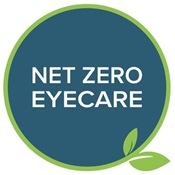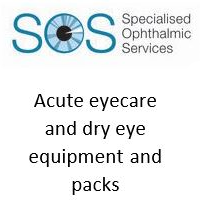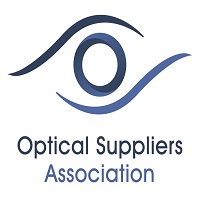General News
More groups to join “The Eyes have It “
More groups to join “The Eyes have It “
Leading national eye care groups join coalition to raise awareness of sight loss
• Royal College of Ophthalmologists (RCOphth) and the Association of Optometrists (AOP) join The Eyes Have It partnership.
• The Eyes Have It partnership will raise awareness of the importance of eye health and call on the Government and the NHS to help improve the lives of those with deteriorating eye conditions.
• More than two million people in the UK live with sight loss, which cost the UK economy £25.5 billion a year.
A leading coalition of national organisations that campaigns to help improve the lives of patients with deteriorating eye conditions has welcomed the Royal College of Ophthalmologists (RCOphth) and the Association of Optometrists (AOP) to its ranks.
The two organisations will join The Eyes Have It partnership, which was set up in July 2021 by the charities Fight for Sight and the Macular Society, and Roche Products Ltd. Roche also funds Ovid Health to act as secretariat to the group.
The coalition aims to raise awareness of the importance of eye health and issues such as delayed referrals, service capacity, a shortage of clinical specialists, and the emotional impact of delays to treatment and the burden of treatment for patients with sight loss.
Professor Bernie Chang, President from the Royal College of Ophthalmologists, said: “More than two million people in the UK are living with sight loss, and that figure is predicted to rise to four million by 2050.
“We have been impressed by the work carried out by The Eyes Have It partnership in raising political awareness of issues relating to sight loss and eye care, and we want to further bolster that work. To support better, more timely treatment for those living with sight loss, it is vital that we have proper investment in the eye care workforce and infrastructure across the whole patient pathway.”
Carolyn Ruston, Director of Policy at the AOP, said: “It is an honour to join the Eyes Have It partnership to raise the profile of eye health across the board. We are excited to be part of a group that is prioritising the importance of good eye health and timely treatment for those who need it.”
Eye conditions have been calculated to cost the UK economy £25.5 billion a year, and ophthalmology is now the busiest specialty in the NHS, with more than eight million outpatient appointments in eye clinics and ophthalmology departments annually. However, following the pandemic, a significant backlog of care has built up, with ophthalmology now accounting for almost one in 10 patients on NHS waiting lists for elective care in England. Providers are struggling to keep pace with rising demand.
The Eyes Have It has drawn up a series of recommendations to help improve the lives of those with deteriorating eye health, which include:
• Appointing a National Clinical Director for Eye Care
• Development of a national strategy for eye care to focus on alleviating pressure on hospital eye services
• Implementation of guidance that would enable direct referral from community optometry to secondary care ophthalmology
Earlier this year, MP Jim Shannon hosted a Westminster Hall Debate, during which he emphasised the need for urgent action to increase capacity in eye care services. It followed Westminster Eye Health Day in October 2021, which welcomed more than 50 MPs including the entire shadow health team. Both events called on Parliament to take more action to address capacity issues in the NHS and improve access for patients.
Thom Renwick, Ophthalmology Lead, Roche Products Ltd said: “Severe sight loss can have a huge impact on people’s quality of life, yet many people are either unaware of the severity of their condition or are unable to access the treatment they need due to capacity issues in the NHS. The Eyes Have It aims to highlight some of these problems and work closely with policy makers to effect change.”
A survey of 1,516 British adults, conducted in August 2021, revealed that at least 80% of respondents felt their sight was more important than their other senses, yet only a quarter (25%) of them ranked having regular check-ups with an optician more important than medical or dental checks.
Cathy Yelf, Chief Executive of the Macular Society, said: “This survey highlights how important our work is in raising awareness of sight loss and the importance of good eye health, not just among parliamentarians and policymakers, but among the wider public too. If patients with macular disease are not treated quickly enough their sight can deteriorate rapidly, which can have a devastating impact on their lives.”
Keith Valentine, Chief Executive from Fight for Sight said: “Sight loss is one of the biggest health challenges we face as a country. To stop sight loss caused by eye conditions and diseases we need to work together to raise awareness, fund research to find new treatments and address issues faced by patients trying to access treatment.
“We are calling on the government to double investment in eye research which could transform hundreds of thousands of lives, save the economy money, and keep the UK at the forefront of ophthalmology research. The most recent available data shows that, in 2018, public bodies invested the equivalent of just £9.60 in eye research for each person with sight loss.”

























